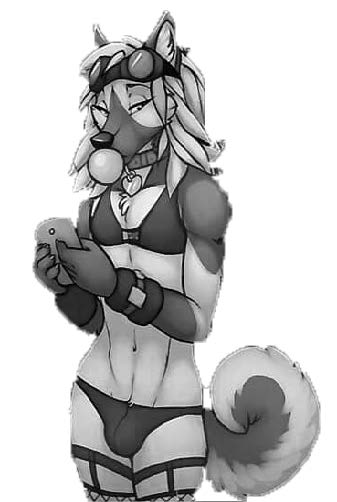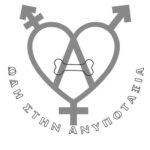KIPSELI, A NEIGHBORHOOD FULL OF
GENTRIFICATION, SEXISM &
SPECIESISM
The following text was written because we were informed
by a passerby about the verbal, physical assault
and videotaping of a queer femininity and her
non-human companion in Kipseli by a boss- shop
owner, for leaving the dog tied up for two minutes
in the flower bed next to his shop.
So, welcome to Kypseli! To one of the main spikes of
urban gentrification, in recent years, in the center of
Athens that has made us experience our presence in
the public space more and more enclosing. Speaking
from the position of people living on minimum
wage or are unemployed, we see increases in rents,
while Greek bosses and their shops are expanding.
Observing the simultaneous and increasingly frequent
displacement of migrants living and working
in the area, their impoverishment and the grabbing
of an ever larger piece of our living space, makes
us furious. Against the backdrop of the metro works
and the imminent further increase in rents, bosses
and posh artists rub their hands together and believe
that all public space belongs to them. Whether
that means they don’t want to see non-human animals
in the flowerbeds, or that they want to take the
public benches and turn them into tables, or setting
up their hipster alternative shops on streets, (like
Agia Zoni- that until recently were mainly inhabited
by immigrants).
Also, exhibitions, like the one
that the Onassis Foundation has set up in Pedio tou
Areos (plasmata), try to integrate our fights in every
way possible. In other words, these cultural institutions
want to pink-wash our demand for visibility of
the non-heteronormative presence and the “different”.
A classic example is of course the existence of
the Municipal Market (that was formerly occupied)
that sells crumbs of multiculturalism. Obviously,
not missing from all this effort is the presence of
the municipality, which is trying to “beautify” the
area. An effort that aims to erase what it considers
monotonous and what it finds disturbing. They are
erasing slogans from the walls, tearing down posters,
planting beautiful flowers and lawns, so that we
have nowhere to stand and nowhere to exist.
The heteronormative gaze that categorizes, judges
and harasses us is a form of violence that we all
pretty much experience in the public sphere. Sometimes,
when we have the mental courage to respond
to the challenges, admonitions or insults of the cis
straight men- who flood the public space- and defend
ourselves, this violence is elevated. Violence
against femininities, non-heteronormative and
queer people is a constant process of imposition
and discipline that, especially when it happens in
public, shows how intentional and normalized it is.
At the same time, with the new visibility that the
issue of femicide has received and with the legitimacy
of the term at stake, there is a supposedly ostensible
awareness of gender issues in greek society.
Of course, there is not the same abundance of discourse
and the same zeal in defending and/or supporting
survivors of violence when they report what
has happened to them, let alone when the survivors
cannot do so because they are not legally constituted
citizens. We can no longer stand for gender-based
violence to gain visibility in the public sphere only
when it is too late for some of us, a visibility that
perpetuates the notion that our bodies are expendable
and does not empower us in the now. We consider
it very important that such incidents do not go
unanswered and that gender violence in the public
sphere is not naturalized in the eyes of the passing
citizens who remain apathetic even in the face of a
person’s near lynching, because we do not want to
get used to violence. We refuse to be obliterated, we
put our bodies forward and in the public space challenging
the certainty that they rightfully belong to
the shopkeepers, violent men.
On the other hand, our rage is not limited to heteropatriarchal
violence because that would alleviate
the violence against our non-human companions
as the anthropocentric speciesist logic places
them as inferior and unimportant. On the streets,
even those non-human animals that are worthy
of respect in Western culture (dog, cat) are treated
as monsters that pollute cities with their presence
even if they coexist with humans. It is no coincidence
that during the spring when people sit outside
on the tables of the coffee-shops or bars, the existence
of non-human animals spoils the “aesthetics”
of the shops and their customers and it is the period
when the intense fights against people walking with
non-human animals start, while at the same time
the frequent placement of poisoned bait is observed.
We, in no way, want to get used to these practices
and be afraid to walk around with our non-human
companions. It is not enough that we have forced
them to live in cities, that they are subjected to daily
speciesistic violence and lynchings, it is not enough
that as a human species we destroy and wipe out
everything natural, we even forbid their access to
artificial flower beds. It is time to promote coexistence
with them and to respond to all the violence
they receive.
We are here, we are many and we will react in whatever means and ways each of us can, defending our non-human friends, our comrades, our bodies and our presence in the public space. We want to ensure that public spaces are not safe spaces for bosses, sexists and racists and we call out that:
IN THE STREETS WE WILL BE TOGETHER
UNTIL EVERY OPPRESSION IS VISIBLE.
KEEP WELL IN MIND, THE PUBLIC SPHERE DOES NOT BELONG
TO SHOPKEEPERS AND BOSSES.
DOGS WILL RUN LOOSE IN YOUR FLOWERBEDS AND ‘LITTER’
EVERY ELEMENT OF YOUR CULTURE.
THE PUBLIC SPACE DOES NOT BELONG TO THE BOSSES,
LET’S CUT OUT THE
NERVE OF CIS STRAIGHT
SEXISTS.
*This brochure was distributed during a protest against gentrification,
sexism and speciesismin Agias Zonis in July 2022

